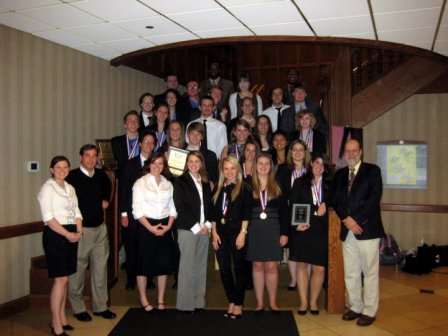There is a pervasive myth that 80 percent to 90 percent of small businesses fail within the first five years. Actually, studies by the Small Business Administration have found that 51 percent of small businesses survive five years and beyond.
Some failure is due to the inexperience of the entrepreneur. If the business owner has not been through a business startup before, or does not have training in business skills, miscues are more likely to result.
Periods of growth can be particularly treacherous as the inexperienced entrepreneur is unable to keep up with the evolving needs the business has for new systems, new processes and additional resources.
We find that those entrepreneurs who have had formal training on how to start and then manage a growing entrepreneurial venture have survival rates as high as 80 percent.
But there always will be a certain number of businesses that fail through no real fault of the entrepreneur. Economic crises, fundamental changes in the market and, as we have witnessed here in Nashville this past week, natural disasters can lead to business failures.
While many businesses affected by the flood will survive, some well-run, healthy businesses will just not be able to recover from the losses they have suffered. Times like these remind me of when our own business was facing difficult circumstances.
I was on a walk with my wife trying to sort through our options. Finally, I said out loud the thought that most entrepreneurs keep to themselves: “What happens if this does not work out? What will we do if the business fails?”
My wife thought for a moment and then said to me, “Remember how happy we were when we were first married? We had nothing but each other, but that was all we really needed. If the business fails, we will still have our family. We will start over from there.”
Thankfully, we made it through that particular crisis. And I always remembered my wife’s wise counsel when we faced future challenging times, as it gave me a certain sense of peace and security.
Bertrand Russell once said: “The most valuable things in life are not measured in monetary terms. The really important things are not houses and lands, stocks and bonds, automobiles and real estate, but friendship, trust, confidence, empathy, mercy, love and faith.”
These are hard words to accept when your business or home has been destroyed. Our daughter and her husband suffered tremendous property loss as the Harpeth River inundated Bellevue.
But our family has received an incredible gift as a result of this tragedy. The help, generosity and support of neighbors, co-workers and students from St. Cecelia — where our daughter teaches — have overwhelmed us.
The kindness exhibited by so many of our fellow citizens here in Middle Tennessee has helped to remind us all of what is truly important.
My thoughts and prayers are with all of the small-business owners who have been affected by the flood. And my thanks goes out to all of you who have volunteered to help to ease the pain experienced by the victims of this tragedy.
(This post ran at my column in the Tennessean today. My thanks to all who have sent their thoughts and prayers during these difficult times. Your comments and e-mails warmed my heart and will never be forgotten.)

